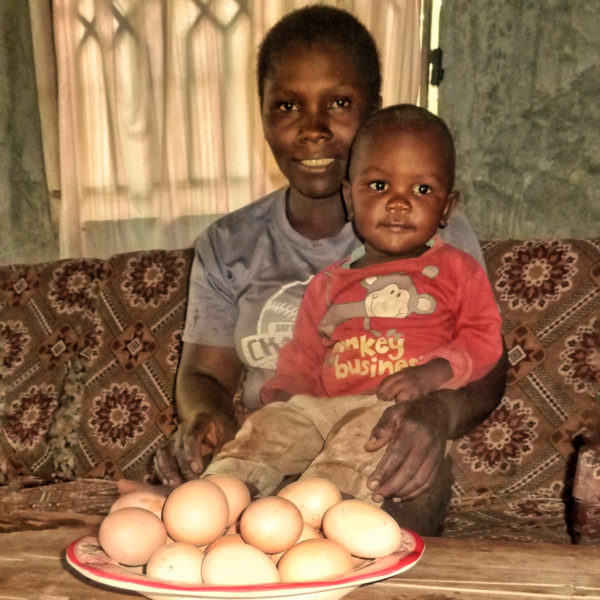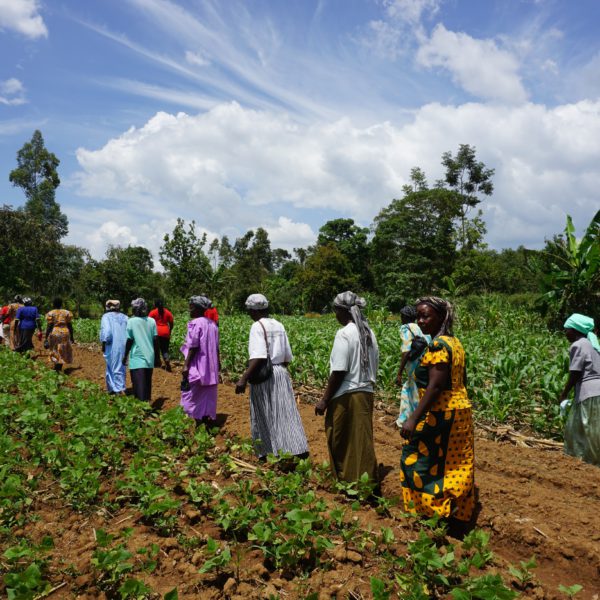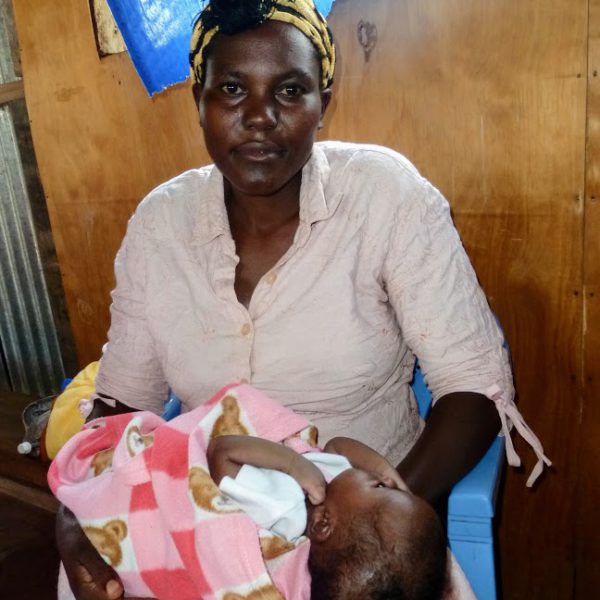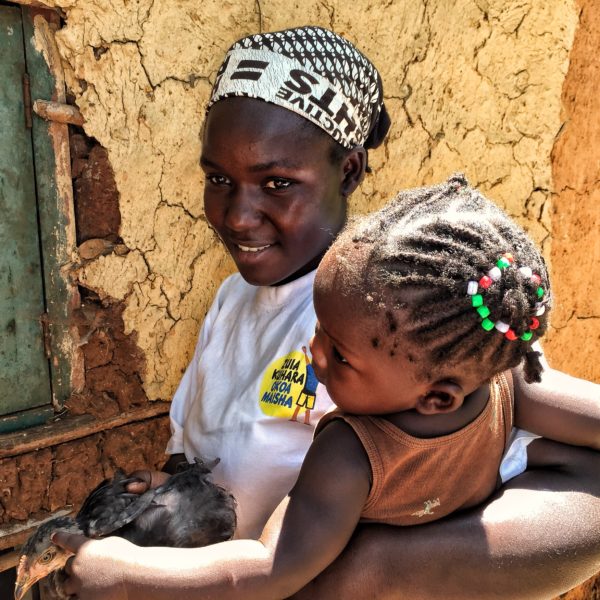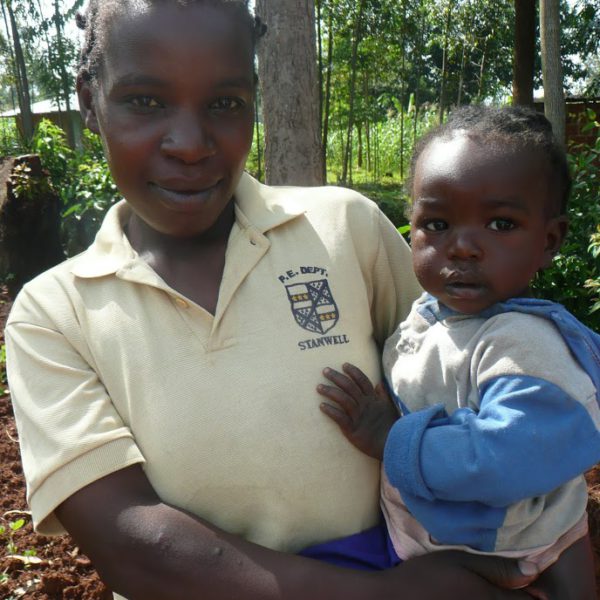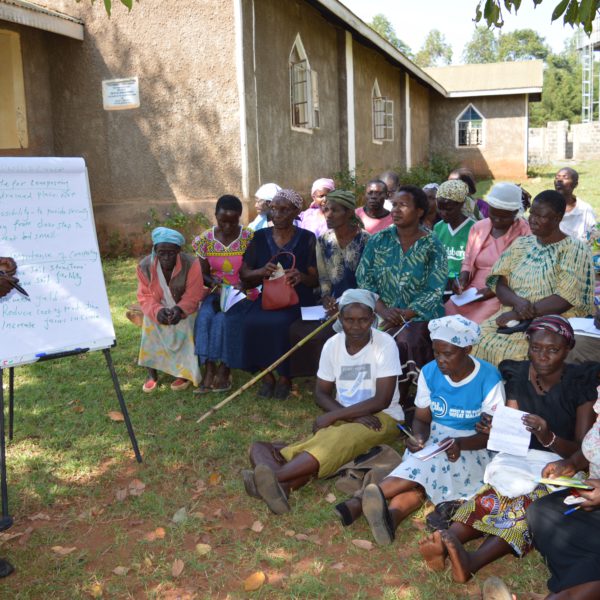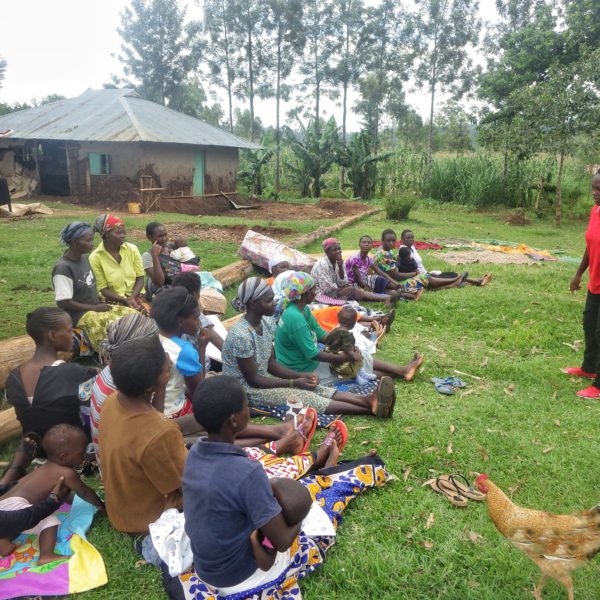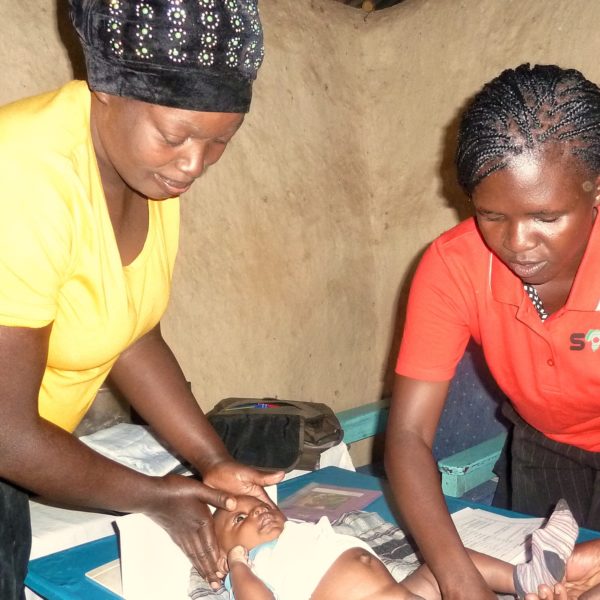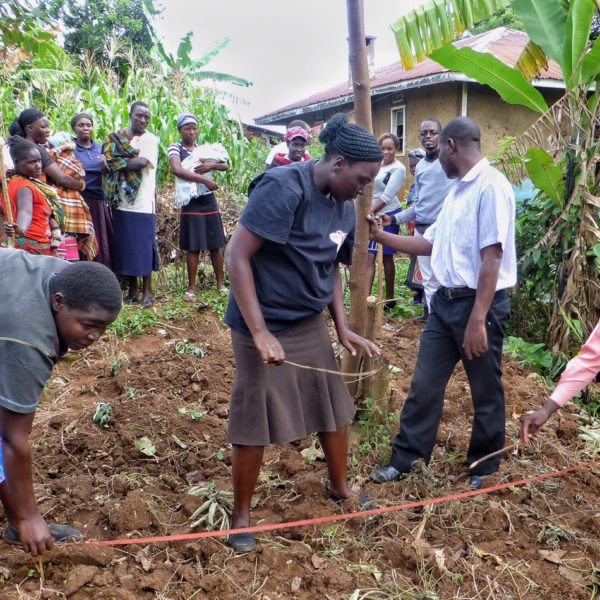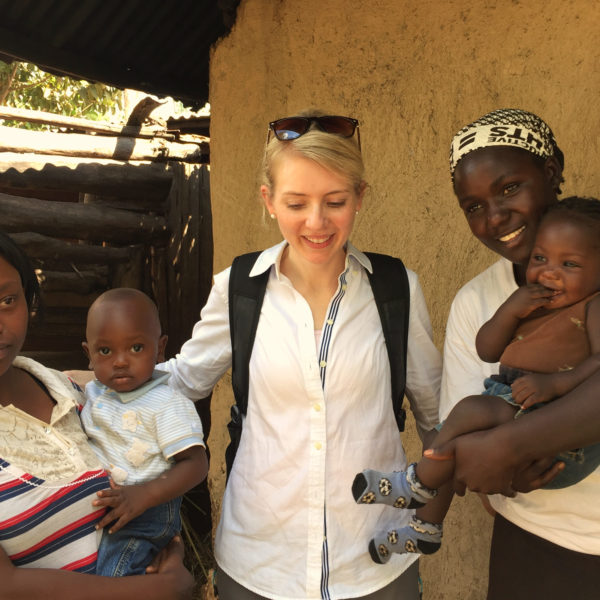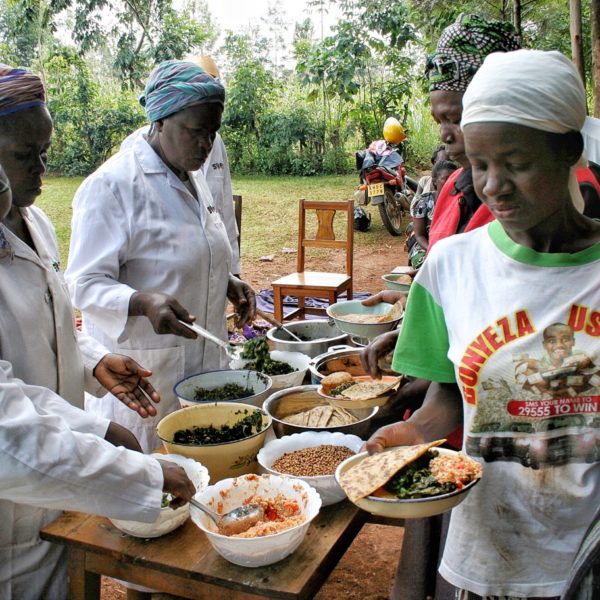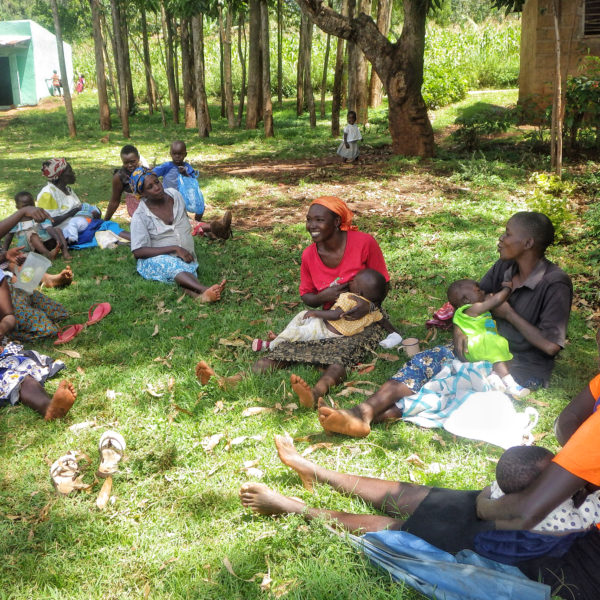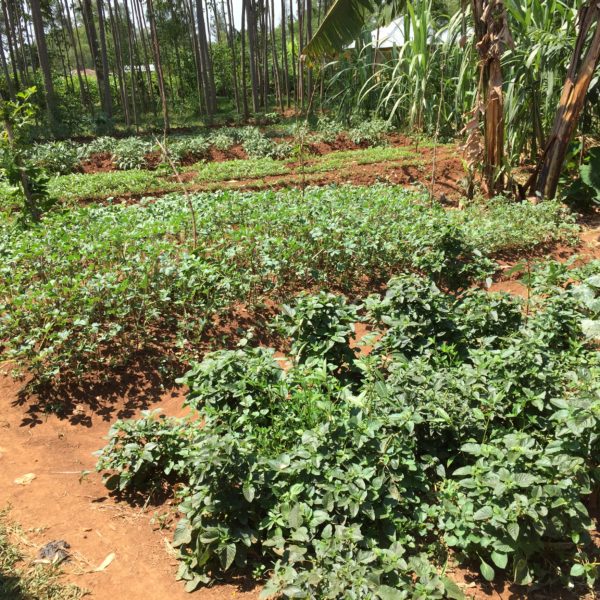THE CHALLENGE
Young mothers have some knowledge about a child’s dietary needs from school, health facilities and community health workers, but are strongly influenced by old traditions and beliefs of their mothers and mothers in laws which often are contradictorily to mother knowledge and thus detremential to the health of the mother and baby. Nutritional knowledge alone does not result in a healthy diet. There are major gaps between what caregivers want to feed their infants and young children, and what they are able to give them. 80% derive their livelihood from agriculture, yet production is low due to lack of agricultural knowledge, small land size, poor soil, lack of money to buy quality seeds, etc., all of which results in insufficient yields. Often only maize is grown as the staple food, as well as “ugali”, some beans and “sukumawiki”, a local kale. Food insecurity is a constant problem for many mothers. It creates a source of worry and affects them emotionally. Often what little they produce is sold to meet other essential needs that require cash. These adverse conditions have led to malnutrition and an average of 23% of stunting in Western Kenya, and as high as 30% in some of the areas where we work. The burden of stunting and malnutrition is serious because it blights lives and undercuts social and economic development of those affected. 81 out of 1000 children in underdeveloped sub Saharan African countries die before their 5th birthday (WHO).
OUR APPROACH
SOFDI has developed and implemented a truly innovative program for pregnant and breastfeeding mothers. In accordance with our successful bottom-up approach, we aim at prevention rather than the curing of illnesses or a short-term improvement of malnutrition with single-sector interventions. Instead we bridge nutritional knowledge with improved agronomic practices to effectively and sustainably prevent child and maternal malnutrition, micro-deficiencies and stunting among the rural poor for better health and resilience. We focus on improved food production for dietary diversity and a change in the detrimental behavior and practices of the mothers. We also engage husbands to help ensure that these positive nutritional practices are kept for years to come.
With the support of the sub-counties’ health sectors, pregnant mothers are organized into mother-to-mother support groups. We provide these groups with substantial support so they can sustainably grow enough healthy food in order to meet dietary requirements during pregnancy and to provide their young children with a healthy start. The consequences of chronic malnutrition are largely irreversible after the 1000-day window. Proper nutrition during this critical development stage can make the difference between life and death.
None of these interventions, however, are a quick fix. Rather, they require substantial action and concerted efforts in the field, and cannot be compared with simply delivering vitamin capsules (which the Government is taking care of by distributing vitamin A and D in schools and health clinics). Our approach has a wider and more sustainable impact. We also engage husbands to help ensure these positive nutrition practices are kept for years to come.
Many families have already started to make a business out of poultry rearing and the sale of agriculture surplus, which has resulted in enhancement of their economic situation. It has also been noted that this program has a spill-over effect. Trained mothers have started to influence other mothers regarding improved feeding practices and are motivating to apply for inclusion in this SOFDI project.
Our comprehensive interventions include:
- 9 days of intensive training in various topics covering agriculture, animal husbandry, nutrition (Infant and Young Child Feeding (IYCF), which also emphasizes the importance of breastfeeding), hygiene and sanitation, behavioral changes regarding food preparation and food storage practices.
- After training, each mother receives a “nutrition package” so she can provide a healthy diet. This package consists of 6 improved indigenous chickens for egg production, papaya trees, a (medicinal) Moringa tree, Vitamin A enriched sweet potato vines, tissue-cultured banana plants of an improved variety, passion fruit seedlings, soya seeds, bio-fortified green bean seeds and African Leafy Vegetable (ALV) seeds. Combined, these are packed with micronutrients, vitamins and proteins providing a healthy diet for mother and child.
- Extensive cooking fairs practical and theoretical knowledge of nurtrition is disseminated to all mothers.
- Monthly meetings and monitoring of the agricultural progress are ongoing, in close collaboration with the county nutritionist and health workers. We encourage mothers and their husbands to consider poultry keeping as an income-generating future business.This has already shown considerable interest by the targeted families and is likely to widen the impact of this program.Mothers have already started selling African Leafy Vegetables for income!
One important facet of this project is the strengthening of our working relationship with the sub-counties’ nutrition/health sector, to promote synergies between their efforts to reduce malnutrition and our strong agricultural component.
Read More :

